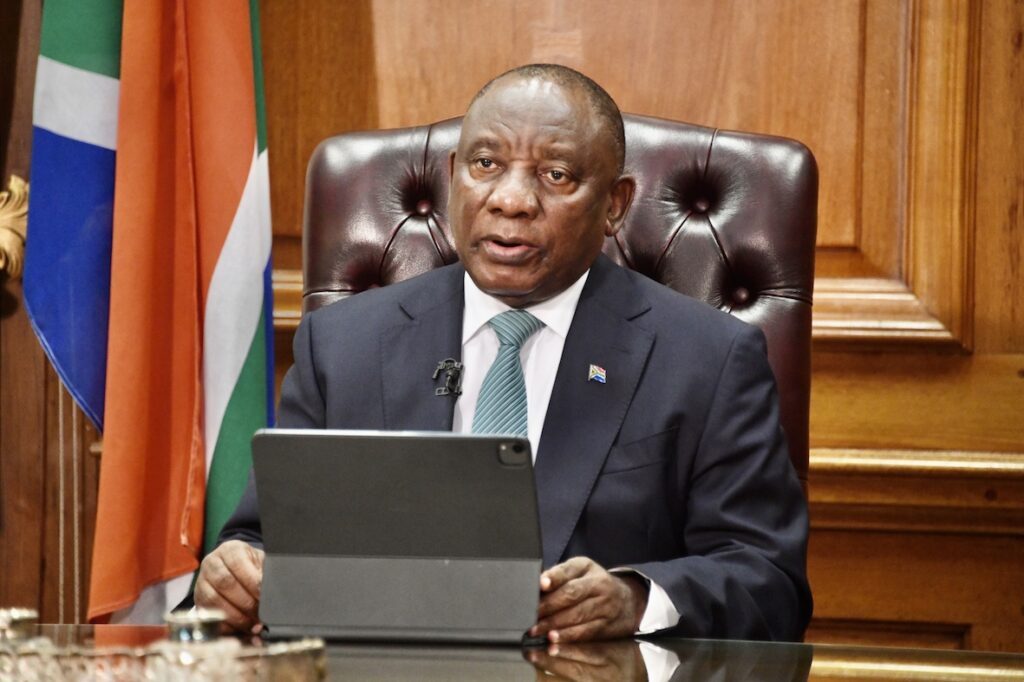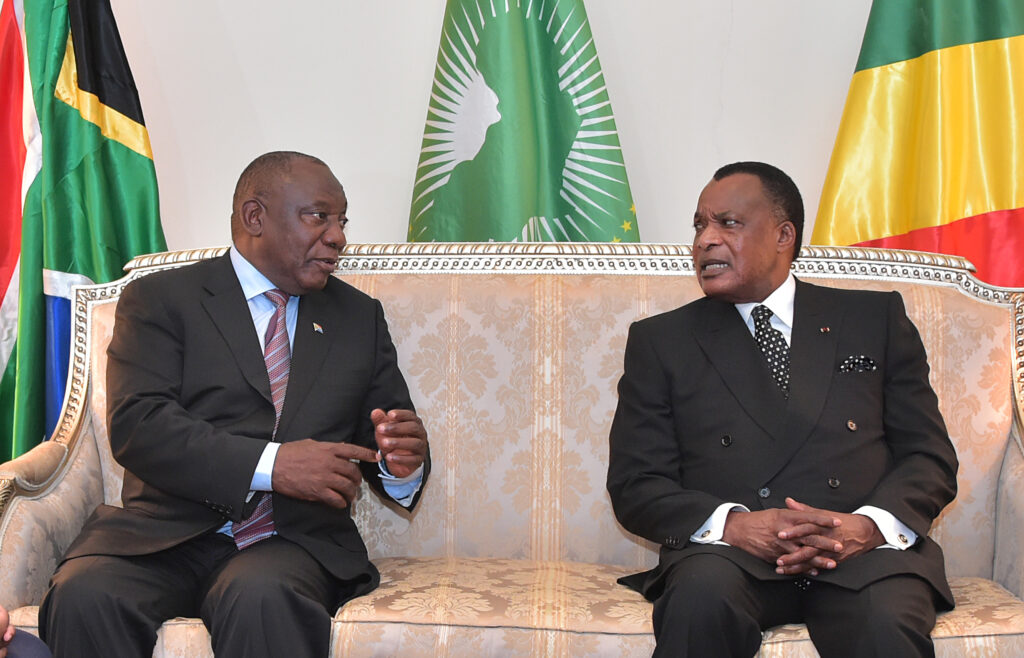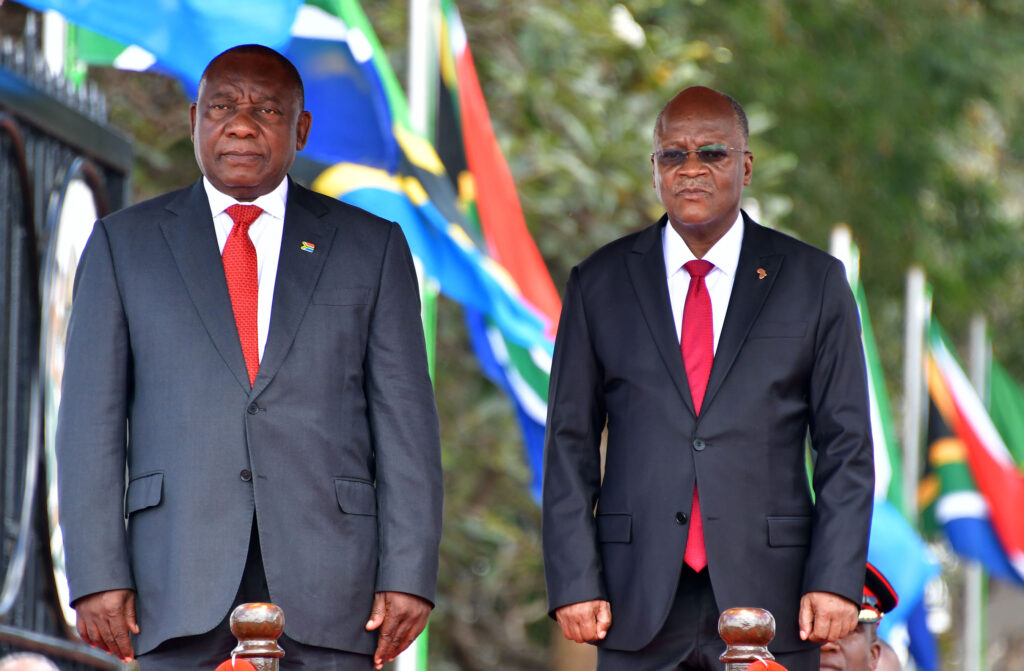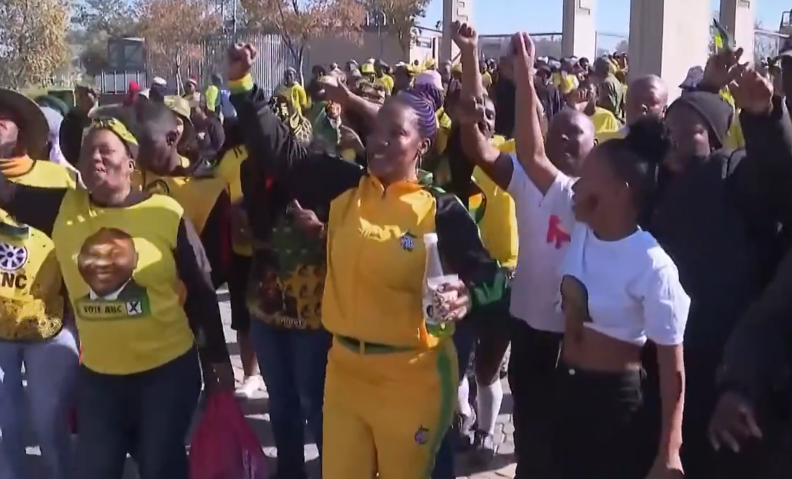The Black Elites in South Africa Are Enraged with the President They Supported

President Cyril Ramaphosa and his African National Congress party are having difficulty holding onto the support of Black middle-class and upper-class voters in Wednesday’s crucial elections.
First Hope and Deepening Disillusionment
The enthusiasm and hope of South Africa’s emerging Black professionals were carried by Cyril Ramaphosa when he assumed the presidency a few years ago. These people see Ramaphosa as a promising replacement for the previous administration, which had denounced Black professionals as elitists involved in upholding white economic dominance. They found themselves reflected in Ramaphosa’s cool-headedness and financial ability.
But Black professionals pose a serious danger to Ramaphosa and the ANC’s tenuous hold on power as voters cast their ballots in the most important election to occur since apartheid ended thirty years ago on Wednesday. According to polls, the ANC will secure less than half of the national vote for the first time since the nation’s first democratic election in 1994. The Black professional class, which was pivotal to previous election outcomes, might have a big impact.
Change in Assistance
Many Black professionals cut ties with the ANC during Jacob Zuma’s scandal-plagued presidency. In the 2019 election, they joined the party again, hoping that Ramaphosa will combat corruption and boost the flagging economy. The ANC’s majority was strengthened by this comeback, but disenchantment has grown. Nowadays, a lot of Black professionals believe that Ramaphosa hasn’t taken strong enough action to revive the economy and get rid of corruption in the ANC. Widespread dissatisfaction with the government is a result of problems including unemployment, poverty, crime, and a shortage of essential services.
While she recognizes Ramaphosa’s efforts to turn around some state institutions, Polo Leteka, a 48-year-old venture capitalist, expressed disappointment, saying, “It just feels like he has not been bold enough.” She feels that Ramaphosa lacks the decisive balance required for effective leadership because he consults too much before acting.
Black Professionals’ Profile
Since apartheid ended, there has been a notable growth in the number of Black professionals, who are classified as middle-class and upper-class individuals with higher education and white-collar occupations. With 3.4 million members out of 62 million Black South Africans, this group accounts for 7% of the country’s Black population and has $22 billion in spending power. Ramaphosa’s support within this group has decreased in spite of this. His approval rating among Black middle-class and upper-class people was 41% in 2022, according to Afrobarometer. The percentage of respondents who said they would vote for the ANC dropped to 30% from 51% in 2018, just after Ramaphosa was elected president.
Beliefs and Actualities
In response to criticism of his leadership style, Ramaphosa has highlighted accomplishments in state-owned businesses such as rail and power companies and maintained that his consultative approach works. Bonke Madlongolwana, a 25-year-old law student and entrepreneur, said bluntly, “I think he lacks a backbone.”

“In a recent town hall with young professionals, Ramaphosa stated that those who are looking for a president who is authoritarian, daring, or careless, won’t find that in me.” He made a point of saying that he wanted to lead by consensus and directness, hoping to win others over to his point of view.
Political Power and Difficulties
Black professionals have a disproportionate impact on the political narrative because of their wealth and access to power, even if the ANC receives the majority of its support from the working class and impoverished. Contrary to popular belief, the ANC is supported more by economically disadvantaged Black South Africans than by wealthy Blacks, even though the latter group gains the greatest advantage from the party’s leadership. Free government housing, monetary subsidies, and positions in public works have less of an impact on black professionals. They want policies that encourage competition with white-owned businesses, competent leadership in state-owned enterprises, and the prosecution of corrupt officials.
Their support for the ANC is further undermined by the “Black tax”—the cost of providing for unemployed family members—and their dissatisfaction with inefficient government policies that force them to foot the bill for hospitals, schools, and private security. The party’s accomplishments, in the opinion of many Black professionals, are the absolute minimum that can be anticipated from any functioning government.
Ramaphosa’s Method
Opponents claim that Ramaphosa seems more focused on internal party strife than on taking tough decisions that would benefit the nation, including firing incompetent ministers. Those who support him, however, argue that his measured approach has stabilized politics and started the process of reforming corrupt state institutions.
According to 32-year-old Sarah Mokwebo, a national treasury department employee, “the one thing you can rely on with his presidency is that there’s a lot of political stability.” The leader of the ANC’s election campaign, Mdumiseni Ntuli, acknowledged the need for improved communication regarding the precise causes of persistent difficulties, including as the financial consequences of the Covid-19 pandemic.

Campaigning Difficulties
More nuanced approaches are needed to engage middle-class voters than at the passionate demonstrations that occur in working-class and impoverished neighborhoods. Ramaphosa frequently holds outreach events in academic forums, banquet lunches, dinners, and private residences. He presents a picture of a South Africa that is headed in the right path by frequently highlighting the inherited corrupt institutions, the energy crises, and the damaged infrastructure that his administration is attempting to solve.
The ANC will, however, face fierce competition from the 51 opposition parties running in this election, 11 of which have united to create a bloc headed by the Democratic Alliance. In order to govern, the ANC will need to create coalitions with opposition parties if it receives less than 50% of the vote.
Novel Political Movements
Former journalist and corporate communications official Songezo Zibi founded Rise Mzansi in an attempt to win over disenchanted Black middle-class and upper-class voters. Zibi observed that it can be difficult to inspire Black professionals to get involved in politics because they frequently ask, “What are you going to do for me?They look to politicians to assist them in fulfilling their dreams.
Thabo Mbeki, who replaced Nelson Mandela in 1999 and concentrated on measures guaranteeing increased Black ownership of firms, is seen by many Black professionals as the ANC’s golden age. However, Zuma’s ascent was aided by the perception that Mbeki neglected the poor; he presented himself as an advocate for common people and denounced Black business executives as “clever Blacks.”
Ramaphosa’s Declaration and Letdown
Black business leaders were optimistic when Ramaphosa succeeded Zuma in 2018 amidst accusations of corruption. Ramaphosa’s wealth came from Black ownership incentives provided by ANC policies, and his impeccable reputation implied he would support Black business owners without giving in to corruption.
40-year-old real estate and agricultural entrepreneur Andile Nomlala remembered a positive encounter with Ramaphosa prior to the 2019 election. After making promises to expand Black-owned enterprises and combat corruption, Nomlala decided to vote for the ANC for the first time since Mbeki’s administration.
However, the last five years have been disappointing. Many people are disillusioned with Ramaphosa because of his alleged delayed reaction to the electrical problem and lack of accountability for dishonest officials. “We feel completely let down,” Nomlala declared. “The ANC has angered the public.”
Ramaphosa and the ANC still have a difficult road ahead of them as they negotiate these crucial elections in the face of mounting unrest and a convoluted political environment.



Leave a Reply